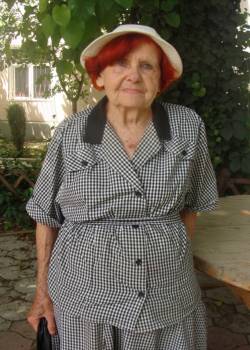 Our human rights do not change as we get older and just because someone is of a certain age shouldn’t mean they are ignored.
Our human rights do not change as we get older and just because someone is of a certain age shouldn’t mean they are ignored.
That is why HelpAge will be attending the 6th session of the Open-ended Working Group on Ageing at the United Nations this week, where we are continuing the call for a convention on the rights of older people.
The importance of an international convention
Currently older people’s right to be free from violence is not protected under international law but a UN convention would change that.
Age discrimination is something I hear about regularly in Eastern Europe but the story is similar across the globe.
Recent interviews with older people in Tajikistan by our partner, the Central Asian Gerontology Centre, revealed the discrimination faced by older people in their daily lives.
Nina Mikhailovna is 87 years old and worked as a dentist for 60 years. She feels older people are discriminated against.
“Very often, when a driver sees an older person at a bus stop the driver does not stop. We do not deserve such treatment. I wish that public transport had designated seats,” she said.
Nina should not face this kind of discrimination. HelpAge believes that a single instrument, a new international convention on the rights of older people, is the most effective way to ensure that all people, now and in the future, enjoy their human rights in their older age on an equal basis with others.
This year’s session in New York
HelpAge has been engaging in the OEWG since its first session in 2011 and will be attending this year along with four older people. This is because we believe it is important that older people themselves participate in this process. After all, it is their lives and the lives of future older people, which will be affected by a new international UN convention.
Lydia Vladimirovna is 78 years old and worked at a university for 40 years. She feels her pension is not enough to support her:
“I believe that my rights are violated because medical services are not free and my pension does not allow me to get full treatment.”
Lydia’s experience is not unique. Yulia Ivanovna is 69 years old and cannot get the medicine she needs because it costs so much. She acknowledged the importance of having independence in older age without having to rely too much on the family.
“I am often sick but medical services are very expensive. I would like all older people to have benefits so that they are not dependent on their children and relatives,” Yulia told me.
On 14 July, at a side event to the OEWG, four older people will speak in their own words, about human rights in older age, giving a voice to millions of older people across the world.
A global issue
Unfortunately from Kenya to Vietnam, Pakistan to Zambia, age discrimination exists but a convention would hold those in authority to account for their actions towards older people.
Aliya Valievna is 77 years old and explained: “Although I worked as a doctor I don’t receive any benefits. I am not able to live as I would like to, with dignity. Bills for medical services are high.”
Older people’s rights are not adequately protected across the world but this is not just a concern for the older generation. One day we too will grow old.
Let’s make sure it happens in a world where everyone’s rights are enjoyed, irrespective of their age.
Get involved
Join the conversation on the Open-ended Working Group with #OEWG6 and #C4OP or follow HelpAge on Twitter and Facebook to hear more about our work on rights this year!
